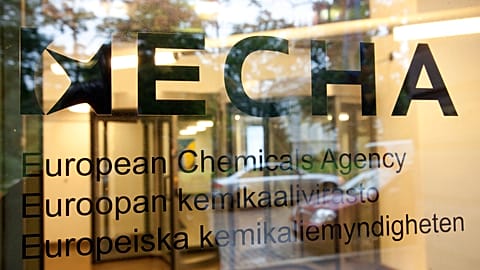Groundwater provides 80 per cent of Switzerland's drinking water.
Forever chemicals have been found in almost half of Swiss groundwater.
 ADVERTISEMENT
ADVERTISEMENT
 ADVERTISEMENT
ADVERTISEMENT
Samples were taken at more than 500 measuring stations. The National Groundwater Observatory (NAQUA) found that the potentially harmful chemical additives are widespread in Switzerland’s main drinking water resource.
However, Swiss limit values were only exceeded at one station, according to the Federal Office for the Environment (FOEN).
What are forever chemicals?
Forever chemicals, or PFAS (per- and polyfluoroalkyl substances), are a large group of human-made chemicals that are used in many products for their non-stick or stain repellent properties.
They earn their name thanks to the fact they don’t break down in the environment.
Harmful to health, PFAS have been linked to conditions like cancer, thyroid disease, and pregnancy-induced hypertension.
The chemicals can be ingested through water, food and even the air.
Although some forever chemicals are now banned in Switzerland, residues are still found in the environment.
What is groundwater?
Groundwater is fresh water that filters beneath the land’s surface, where it is held in porous rocks or sediment known as aquifers.
Groundwater is Switzerland's main drinking water source, providing 80 per cent of the country’s needs.
In 2021, FOEN and NAQUA set out to analyse Swiss groundwater samples for 26 types of PFAS. The results released on 12 September identified 13 types of PFAS across almost half of the measuring stations.
The highest concentrations were measured for PFOS (perfluorooctane sulfonate), which has been largely banned in the country since 2011. This type of forever chemical poses the greatest risk to health. In the past, it was widely used as a protective coating for textiles such as carpets and leather.
Switzerland sets a safe limit of between 0.3 and 0.5 micrograms of PFAS per litre of groundwater, with a limit of three individual types of PFAS per sample. This was only exceeded at one of the measuring stations.
How do PFAS get into drinking water?
Firefighting foams containing PFAS are one of the main culprits for forever chemicals in groundwater, according to FOEN.
These are used repeatedly at fire extinguishing training areas as well as industrial areas, reservoirs and railways, and can leak forever chemicals into the soil.
Groundwater is also contaminated with PFAS from other sources, such as landfills and wastewater.
Switzerland is currently examining whether an action plan is needed to reduce the exposure of humans and the environment to forever chemicals.
Are PFAS banned in the EU?
So far, the EU only restricts certain types of PFAS. PFOA (perfluorooctanoic acid) is banned, while PFOS is prohibited apart from a few uses.
In an ongoing battle over the issue, the European Commission has proposed a full ban on PFAS but manufacturers are pushing back on this.
Various regulatory bodies are set to vote on the proposed legislation next year. If approved, it could come into force in 2026.
Earlier this year, an investigation by the Forever Pollution Project found that 17,000 sites across Europe and the UK are contaminated with the toxic chemicals.
Contamination sites were particularly dense in Belgium - home to 3M’s PFAS manufacturing site in Zwijndrecht, Flanders - England, the Netherlands, Germany, Switzerland, and parts of France and Italy.
In the UK, groundwater monitoring between 2014 and 2019 found the widespread presence of PFAS, with some chemicals found in almost 40 per cent of tested sites.
Earlier this year, a report published by the French Ministry of Ecological Transition found that forever chemicals were very poorly monitored in the country, prompting mandatory monitoring of 20 types of forever chemicals.

















